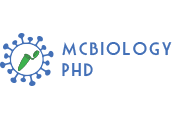Honors and Fellowships (societies, boards, awards (etc etc)
2004 Young Investigator Award, the Society for Free Radical Research, Lodz (PL)
2013-present Editor of Oxidative Medicine and Cellular Longevity
2011 Lead Guest Editor of International Journal of Cell Biology – Special Issue on “Redox Bioenergetics Liaison in Cancer and Neurodegeneration”
2013 Lead Guest Editor of Frontiers in Oncology for the Research Topic “Redox and Metabolic Circuits in Cancer”
2013-present Reviewer for funding agencies: Parkinson’s UK and World-Wide Cancer Research (UK), Croatian Science Foundation (HR), The Italian Ministry of University and Research (I), The Austrian Science Fund – FWF (AU).
Funding
Main applicant:
2010 – Young Italian Researchers Grant, Proposal n. GR-2008-1138121 – Italian Ministry
of Health.
2012 – MFAG – 2011, proposal n. 11452 – Italian Association for Cancer Research (AIRC).
2014 – Danish Cancer Society Scientific Committee (KBVU), Proposal n. R72-A4647 – Danish Cancer Society (DK).
2016 – Danish Cancer Society Scientific Committee (KBVU), Proposal n. R146-A9414 – Danish Cancer Society (DK).
2017 – Investigator Grant IG 2017, Proposal n. 20719 – Italian Association for Cancer Research (AIRC).
2017 – ISCRA – CINECA HPC system, Project n. IsC55.
Co-applicant
2014 – Uncovering Excellence Grant, Proposal “MDESMPLAT” – University of Tor Vergata.
2016 – National Institute for Insurance against Accidents at Work (INAIL), Proposal n. DCR 131.
Professional Memberships
2012 The European Cell Death Organization;
2007 The Biochemical Society;
2004 The Society of Free Radical Research;
Research field
The main focus of our laboratory has been always directed to the characterization of new redox signaling pathways governing cell life and death, and the identification of the molecular players underneath. During the last ten years we have contributed to clarify the role of the mitogen activated protein kinase (MAPK) super family and the AMP-dependent protein kinase (AMPK) in the cytotoxicity of several redox-active compounds (of new synthesis or natural-derived), which exert anti-tumor activity.
By tradition, we have deep expertise of all the biochemical processes underlying cell metabolism and bio-energetics, and our main value is to combine this skill with state-of-the-art technology and protocols of molecular and cellular biology. By means of such a synergy and through the collaborations with worldwide renowned scientists, we have more recently unveiled the role of autophagy and mitochondrial function and dynamics in different aspects of cancer biology and aging. In particular, we have focused on the enzyme S-nitrosoglutathione reductase (GSNOR) and its role in human pathophysiology, namely in neuromuscular diseases, cancer, and aging. We have discovered that any deficiencies of GSNOR deeply affects skeletal muscle physiology and is tightly associated with malignancy through the selective S-nitrosylation of key proteins and enzymes underlying mitochondrial morphology and quality control, rather than cell adhesion and phospho-signaling. We have also provided evidence that GSNOR silencing is a physiological event caused by epigenetic modifications of DNA, which takes place during life span and profoundly contributes to mammalian cell senescence and aging.
15 selected Publications of the last 10 years
*, first author
**, last/corresponding author
-
S. Cardaci, G. Filomeni*, G. Rotilio, M.R. Ciriolo (2008) “Reactive oxygen species mediates p53 activation and apoptosis induced by sodium nitroprusside in SH-SY5Y cells.” Mol Pharmacol. 74, 1234-1245.
-
G. Filomeni*, S. Piccirillo, I. Graziani, S. Cardaci, A.M. Da Costa Ferreira, G. Rotilio, M.R. Ciriolo (2009) “A novel isatin-Schiff base copper(II) complex acts as delocalized lipophilic cation, yields widespread mitochondrial oxidative damage and induces AMP-activated protein kinase-dependent apoptosis.” Carcinogenesis. 30, 1115-1124.
-
S. Piccirillo, G. Filomeni*, B. Brune, G. Rotilio, M.R. Ciriolo (2009) “Redox mechanisms involved in the selective activation of Nrf2-mediated resistance versus p53-dependent apoptosis in adenocarcinoma gastric cells.” J Biol Chem. 284, 27721-27733.
-
G. Filomeni*, E. Desideri, S. Cardaci, I. Graziani, S. Piccirillo, G. Rotilio, M.R. Ciriolo (2010) “Carcinoma cells activate AMP-activated protein kinase-dependent autophagy as survival response to kaempferol-mediated energetic impairment.” Autophagy. 6, 202-216.
-
S. Cardaci, G. Filomeni*, G. Rotilio, M.R. Ciriolo (2010) “p38MAPK/p53 signaling axis mediates neuronal apoptosis in response to tetrahydrobiopterin-induced oxidative stress and glucose uptake inhibition: implication for neurodegeneration.” Biochem J. 430, 439-451.
-
G. Filomeni**, E. Desideri, S. Cardaci, G. Rotilio, M.R. Ciriolo (2010) “Under the ROS…Thiol network is the principal suspect for autophagy commitment.” Autophagy. 6, 999-1005.
-
G. Filomeni*, S. Cardaci, A.M. Da Costa Ferreira, G. Rotilio, M.R. Ciriolo (2011) “Metabolic oxidative stress elicited by the copper(II) complex [Cu(isaepy)2] triggers apoptosis in SH-SY5Y cells through the induction of AMP-activated protein kinase/p38MAPK/p53 signalling axis.” Biochem J. 437, 443-453.
-
G. Filomeni*, I. Graziani, D. De Zio, L. Dini, D. Centonze, G. Rotilio, M.R. Ciriolo (2012) “Neuroprotection of kaempferol by autophagy in models of rotenone-mediated acute toxicity: possible implications for Parkinson’s disease.” Neurobiol Aging. 33, 767-785.
-
S. Cardaci, G. Filomeni**, M.R. Ciriolo (2012) “Redox implications of AMPK-mediated signal transduction beyond the energetic clues.” J Cell Sci. 125, 2115-2125.
-
C. Montagna, G. Di Giacomo, S. Rizza, S. Cardaci, E. Ferraro, P. Grumati, D. De Zio, E. Maiani, C. Muscoli, F. Lauro, S. Ilari, S. Bernardini, S. Cannata, C. Gargioli, M.R. Ciriolo, F. Cecconi, P. Bonaldo, G. Filomeni** (2014) “S-nitrosoglutathione reductase deficiency-induced S-nitrosylation results in neuromuscular dysfunction.” Antioxid Redox Signal. 21, 570-587.
-
G. Filomeni**, D. De Zio, F. Cecconi (2014) “Oxidative stress and autophagy: the clash between damage and metabolic needs.” Cell Death Differ. 22, 377-388.
-
S. Rizza, C. Cirotti, C. Montagna, S. Cardaci, C. Consales, M. Cozzolino, M.T. Carrí, F. Cecconi, G. Filomeni** (2015) “S-nitrosoglutathione reductase plays opposite roles in SH-SY5Y models of Parkinson’s disease and amyotrophic lateral sclerosis.” Mediators Inflamm. 2015:536238.
-
S. Rizza, C. Montagna, S. Cardaci, E. Maiani, G. Di Giacomo, V. Sanchez-Quiles, B. Blagoev, A. Rasola, D. De Zio, J.S. Stamler, F. Cecconi, G. Filomeni** (2016) “S-nitrosylation of the mitochondrial chaperone TRAP1 sensitizes hepatocellular carcinoma cells to succinate dehydrogenase-targeting drugs.” Cancer Res. 76, 4170-4182.
-
S. Rizza, G. Filomeni** (2017) “Chronicles of a reductase: Biochemistry, genetics and physiopathological role of GSNOR.” Free Radic Biol Med. 110, 19-30.
-
S. Rizza , S. Cardaci , C. Montagna , G. Di Giacomo , D. De Zio , M. Bordi , E. Maiani , S. Campello , A. Borreca , A.A. Puca , J.S. Stamler , F. Cecconi , G. Filomeni** (2018) “S-nitrosylation drives cellular senescence and aging in mammals by controlling mitochondrial dynamics and mitophagy” Proc Natl Acad Sci USA (In press)


